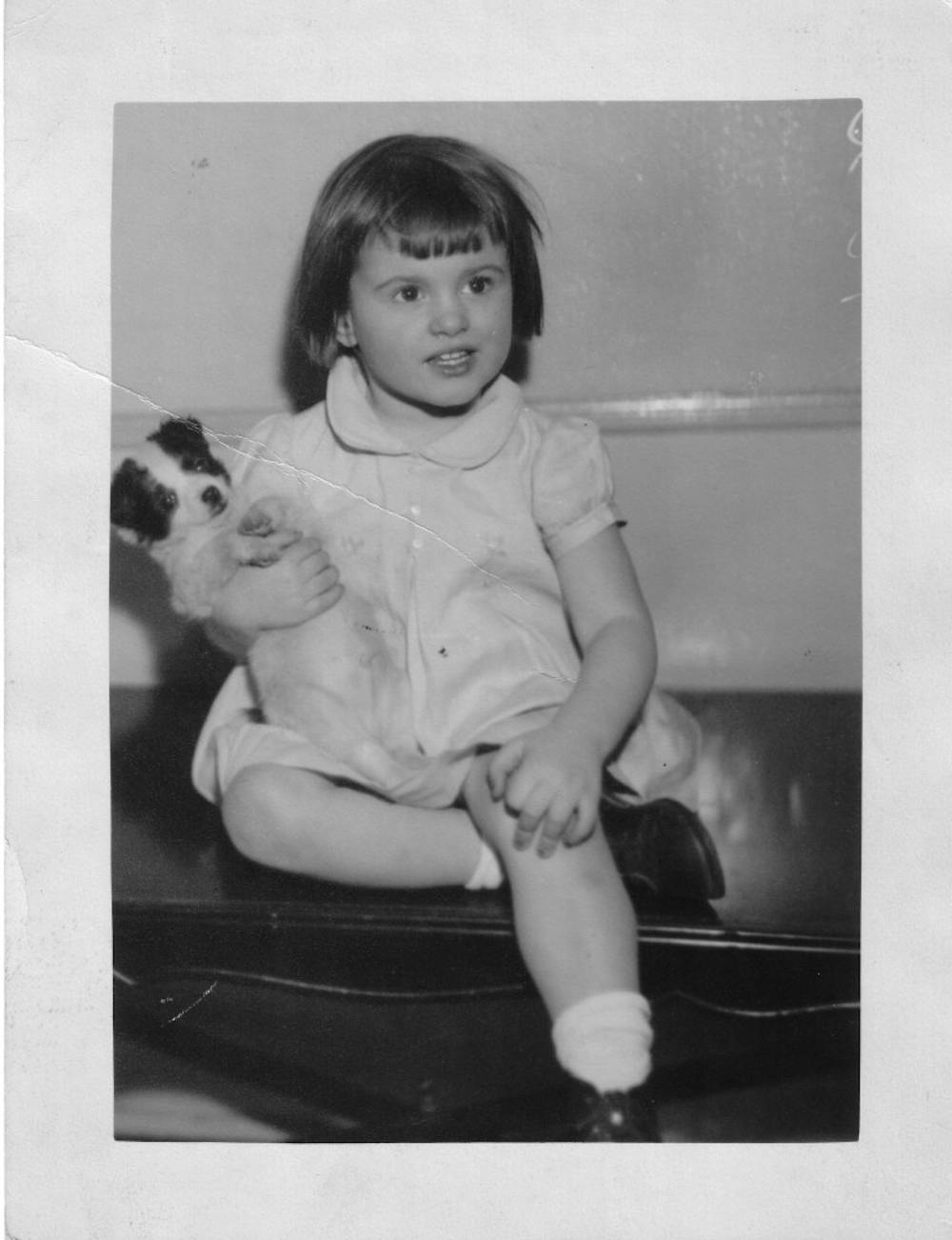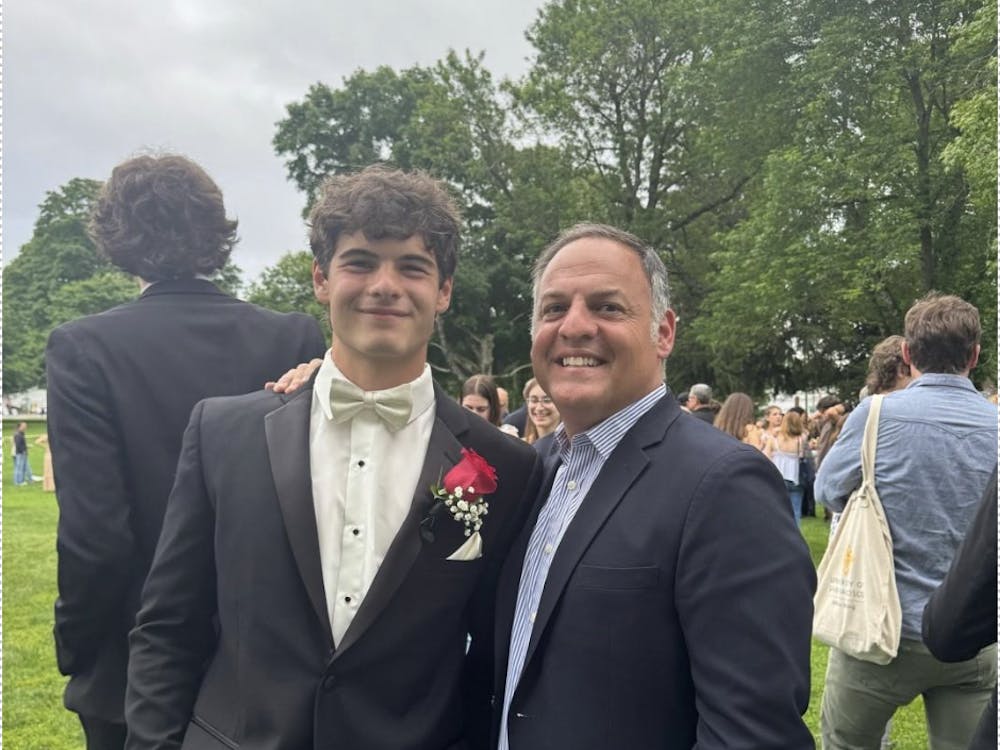
Soon after I was born — one month premature, weighing under five pounds and yellowed with jaundice — my dad held my whole body in one hand and instantly felt a strong bond between us. He told me that he felt a profound desire to care for his newborn son. There might come a time, however, when you need to take care of your own parent.
For my high school’s Young Playwrights Festival last spring, I wrote a show about a woman with Alzheimer’s, who rides on a train and converses with a series of progressively younger versions of herself.
Most kids would have eagerly invited their parents to the performance of their play, or they would at least have told them about it.
That isn’t an option, though, when the subject of your show is your assisted living facility resident grandmother: mute and shockingly unrecognizable without the mascara to which you’d been so accustomed; denying the first signs of her dementia and refusing advice to start writing things down to remember them.
My show relived the frustrations, stress and sorrows wrought on my family by my grandmother’s gradually worsening neurodegeneration and lifetime of mistakes and regrets, which I am not including in this article to protect my parents, ones you couldn’t blame my grandmother for forgetting.
Suppressing the urge to be the object of my parents’ pride, I decided not to tell them about the show. Of course, my plan somewhat backfired. Two days before opening night, my next-door neighbor came to my backyard to retrieve his dog, a serial escapee. Naturally, his daughter had been cast in my show.
“So, you’re the playwright,” he said, just steps away from the screen windows of my porch, where my mother was sitting.
“I am.”
After failing to reunite man and dog, I went back to my porch. My mother threw me a puzzled look. “What show, Rudy?”
“It’s for the Young Playwrights Festival at school.”
“Why didn’t you tell me and Dad about it?” she asked.
“My show’s kind of about Grandma.” I explained the premise of my show.
My mom sighed, “Is it obviously autobiographical?”
“Oh no, of course not. Grandma’s still alive. In the play, the protagonist dies when she gets off a train with the youngest version of herself.”
After writing the play, desperate for a title, I realized the parallel between its plot and the Greek myth of the River Styx, which dictated that the souls of the newly dead were brought to the underworld by means of a ferryboat driven by a psychopomp named Charon.
Out of the corner of my eye, I noticed a flash of dirty white fur. Sighing, I went out the back door again and, like a Charon of sorts, walked up my ashen driveway and guided the yapping, angered spirit back home.
“When is it?” she asked when I returned.
“Thursday and Friday nights. But you guys can’t see it.”
“Are you sure?”
“Yes, it would make Dad sad. It’s about Grandma’s life. Please don’t tell him.”
Weeks earlier, my grandmother’s recreational therapist had called my dad. As I eavesdropped on their conversation, I reminisced about my grandmother before her cognitive decline.
I remembered how her silky brown hair had gleamed in the sunlight that wafted through the windowpanes in the living room as I sat on her lap as a toddler, my stubby fingers reaching for her reading glasses as she narrated a picture book.
I imagine my father recalled the closeness they’d shared. Indeed, after hanging up, his eyes were coated with a wet film.
I can count on one hand how many times I’ve seen this man cry. One of those few times was when I came out to him as gay. A few days later, he gave me a poem he’d written that expressed how he’d felt, in which he described how he’d been reminded of that moment of holding me as a newborn.
When I came out to him, he felt overwhelmed by the urge to protect me in a world where members of the LGBTQ community are more likely than any other minority group to be the targets of hate crime.
Throughout the show, I repeated to my friends, “I can’t watch this.” Unaware of the personal history behind my play, they told me to “chill out.” But how could I? As I watched the actresses playing my grandmother struggle with her condition, my eyes glistened like my father’s had after that telephone conversation and after I came out to him.
I knew I’d made the right decision not to invite my parents. Although not having them at the show was disappointing, I’d realized the playbill could not grace our refrigerator. I’d forfeited the opportunity to share my achievement with my parents in order to shield my father from the pain of watching his mother’s life play out onstage.
At the end of the show, one friend asked me, “How’d you even write a play?” In reality, most of the show’s plot drew not from my imagination but instead from the suffering that my family and I had kept secret. In a way, watching my show felt like coming out to the community.
Not one person in that auditorium knew of its autobiographical basis. I was humiliated as the audience watched my grandmother’s life unfold. But with each younger version of herself she spoke to, she regained parts of her life that the Alzheimer’s stole from her.
Watching actors, psychopomps of sorts, bring my words to life deepened my desire to become a writer. In my show my grandmother didn’t die in a nursing home, a shell of what she used to be, but instead on a train, carrying honor and humanity that I had given her.





